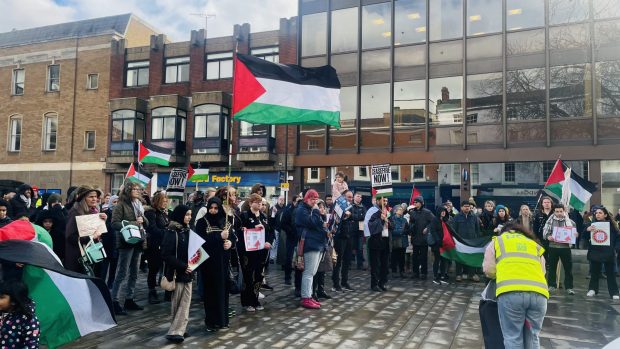Scores of passionate demonstrators have flooded the streets of Lincoln in a call for justice and freedom for Palestine.
The “Stop the Bombs” march stretched from the Cardinal’s Hat pub to the Cornhill Quarter, drawing attention to the ongoing plight of Palestinians suffering during the Israel-Hamas war.
With banners in hand and chants including “Break free” and “Stop the war in Gaza,” demonstrators expressed their support for the Palestinian people. Participants demanded a ceasefire and an end to the violence.
Patrick Sikorski. chairman of the Palestine Solidarity Campaign – which organised the demonstration – emphasised the longstanding commitment of the organisation to the cause.
He said: “Palestine Solidarity Campaign was officially founded in 2004 so we have been involved as a national campaign since then.”
Among the impassioned speeches delivered at the rally, Julian Carter, a member of the Lincoln PSC and president of the Palestine Solidarity Society at the University of Lincoln, powerfully articulated the urgency of the situation.
He said: “If it is possible to dehumanise a population of 2.1 million, to such a degree that the government cannot bring themselves to oppose their slaughter, what evils would they allow to happen to you, if they think they can get away with this?”
He warned about the broader implications of inaction: “what has happened to them, can happen to me, and can happen to you.”
As the rally – held on March 2 – concluded, the resounding message of solidarity echoed through the streets, emphasizing the urgent need for global action to address the ongoing humanitarian crisis.
